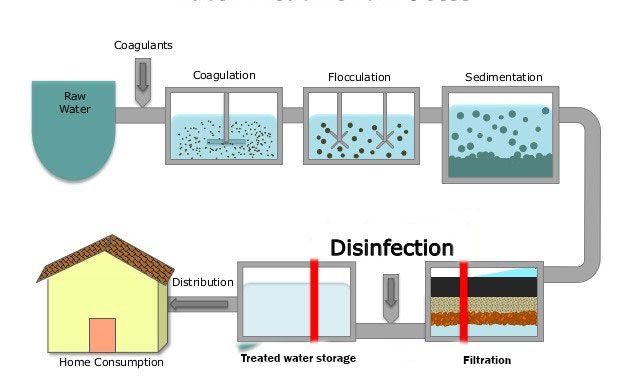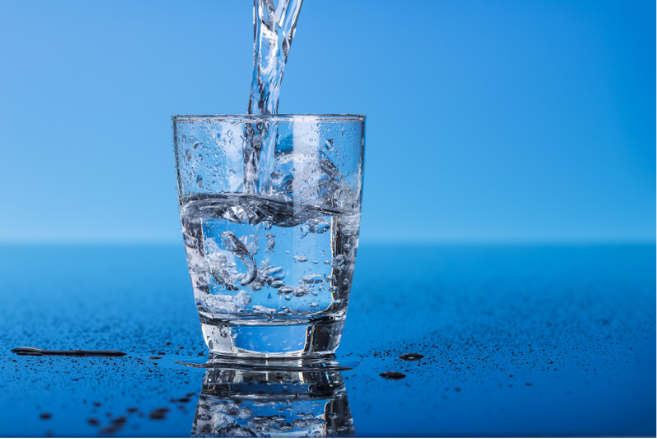Why a Water Purification System Is Necessary for Tidy, Safe Water
Access to tidy, secure water is an essential human right and a cornerstone of public health and wellness. Nevertheless, the visibility of unsafe contaminants such as microorganisms, hefty metals, and chemical contaminants in our water increases severe problems regarding health and wellness and well-being. A water filtration system stands as a vital service to minimize these risks, ensuring that neighborhoods and individuals can access risk-free drinking water. Recognizing the ins and outs of these systems and their numerous techniques is vital, specifically as we consider the implications for health and wellness end results and environmental sustainability in our day-to-days live.
Relevance of Tidy Water
Access to tidy water is an essential necessity for human health and wellness and wellness. It is crucial for maintaining life, sustaining health, and keeping total public wellness. Water Purification System. The schedule of risk-free drinking water substantially lowers the risk of waterborne conditions, which position a considerable risk to neighborhoods worldwide. Infected water can bring about serious wellness concerns, including gastrointestinal ailments, cholera, and dysentery, particularly in at risk populations such as kids and the elderly.
In addition, tidy water is crucial for cleanliness and hygiene practices, which are important in preventing the spread of contagious diseases. Ample water system supports correct sanitation facilities, promoting a healthier environment. Furthermore, accessibility to safe water affects socioeconomic elements, as it makes it possible for areas to participate in industrial and farming tasks, inevitably contributing to economic growth.
In many regions, the absence of clean water intensifies hardship and inequality, further impeding progression towards lasting growth objectives. As a result, making sure accessibility to tidy water is not just a public health and wellness crucial however additionally a keystone for social equity and financial growth. Efforts to boost water quality and facilities have significant advantages, cultivating much healthier areas and improving top quality of life.

Usual Pollutants in Water
Ensuring the schedule of clean water is threatened by different contaminants that can jeopardize its safety and security and quality. The presence of pathogens, such as microorganisms, viruses, and bloodsuckers, postures significant health dangers, especially in locations lacking adequate cleanliness. These microorganisms can cause waterborne illness, causing extreme health problem or perhaps death.
Chemical pollutants also present a crucial concern. Heavy steels, consisting of arsenic, mercury, and lead, frequently go into water products with industrial discharges or corroded pipes. These materials can gather in the body over time, causing long-term wellness concerns such as neurological damage and developing problems.
Furthermore, farming runoff presents pesticides and fertilizers right into water supply, which can interfere with communities and negatively effect human wellness. Nitrates, frequently discovered in plant foods, can create severe conditions like methemoglobinemia, especially in infants.
Advantages of Water Purification Equipments
Recognizing the essential demand for risk-free drinking water, water filtration systems use a myriad of advantages that improve public health and wellness and environmental sustainability. Mostly, these systems properly remove damaging contaminants, including bacteria, infections, heavy metals, and chemicals, making certain that the water taken in is totally free from pollutants and virus. This decrease in impurities dramatically decreases the threat of waterborne conditions, promoting general area health.
Along with wellness advantages, water purification systems add to environmental sustainability by minimizing dependence on bottled water, which typically produces too much plastic waste. By utilizing a purification system, families can lower their carbon impact and add to a more sustainable ecosystem. These systems can improve the preference and smell of water, making it more palatable for everyday consumption.

Different Types of Filtration Methods

One common technique is reverse osmosis, which uses a semi-permeable membrane layer to different water from dissolved contaminants and solids. This procedure efficiently lowers pollutants, consisting of hefty metals and chemicals. One more extensively used method is ultraviolet (UV) disinfection, which utilizes UV light to counteract infections and bacteria, providing them safe without the usage of chemicals.
Triggered carbon filtration is one more preferred technique, utilizing carbon to adsorb natural compounds, chlorine, and undesirable odors, enhancing preference and smell high quality. Purification, a procedure that involves boiling water and condensing the vapor, effectively removes impurities and minerals however might call for even more power contrasted to various other methods.
Ion exchange is usually made use of to soften water by replacing calcium and magnesium ions with salt or potassium ions. Each technique has its advantages and constraints, making it vital to recognize their performances and performance in addressing certain water quality issues - Water Purification System. Inevitably, selecting the suitable purification approach is vital for click here to read making sure risk-free and tidy alcohol consumption water
Choosing the Right System
Choosing an ideal water purification system needs mindful consideration of different elements, consisting of the specific pollutants existing in the water supply, the volume of water required, and the wanted filtration approach. First, it is necessary to carry out a water top quality examination to recognize impurities such as microorganisms, hefty metals, or chemical contaminants. This information will certainly direct you in picking a system that effectively targets those certain contaminations.
Next, evaluate your home's day-to-day water intake to determine the system's capability. Solutions are available in various sizes, from point-of-use filters for drinking water to whole-house units that purify all water entering your home.
Moreover, think about the filtration technique that ideal fits your needs. Reverse osmosis is highly efficient for eliminating a broad array of impurities, while UV filtration is superb for getting rid of microorganisms.
Verdict
In conclusion, the implementation of water purification systems is vital for making sure access to clean and risk-free water. By understanding the relevance of tidy water and the benefits of different purification approaches, neighborhoods can make informed decisions to secure their health and promote socioeconomic stability.
Acknowledging the essential demand for safe alcohol consumption water, water purification systems provide a myriad of advantages that enhance public health and wellness and ecological sustainability.In enhancement to wellness advantages, water filtration systems add to environmental sustainability by reducing dependence on bottled water, which often produces excessive plastic waste. Eventually, the adoption of water purification systems is an aggressive action towards guaranteeing tidy, risk-free water for future generations while protecting public wellness and the environment.
Choosing a proper water purification system needs careful factor to consider of various variables, consisting of discover this info here the particular contaminants present in the water supply, the quantity of water needed, and the wanted filtration method.In verdict, the execution of water purification systems is vital for guaranteeing access to safe and clean water.